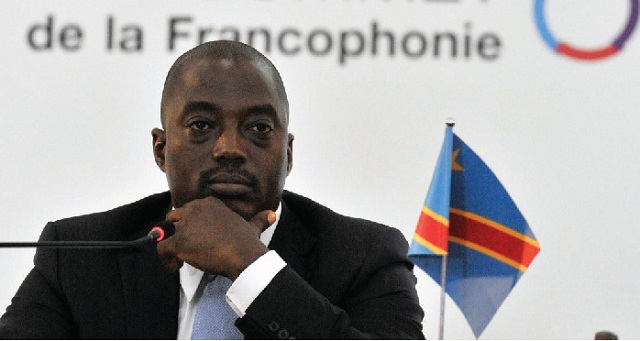
Kinshasa, DR Congo | AFP | Efforts to force DR Congo President Joseph Kabila to quit face a key test on Sunday when protestors, backed by the Catholic church, return to the streets after two demonstrations that the authorities bloodily repressed.
Fifteen people were killed by security forces on New Year’s Eve and January 21 in peaceful protests that sought to heap pressure on Kabila to step down, according to a toll by the UN and organisers. The government says two people died.
Sunday’s march in Kinshasa has been called by the Lay Coordination Committee (CLC), an organisation close to the church, an influential social and spiritual force in the Democratic Republic of Congo.
Kinshasa city authorities have “neither authorised nor banned” the planned march, according to officials who said they have not been contacted by the organisers.
Ahead of the protest, many Catholics in the capital attended mass on Friday, heeding a call by Pope Francis to pray for peace in their country and in war-battered South Sudan.
In the Sacred Heart church, Father Crispin Mbala urged Christians to join the non-violent march.
“The antidote to fear is commitment,” the Jesuit priest told worshippers in a church frequented by several prominent public figures.
Some churchgoers told AFP Friday how they felt bolstered by Francis’ action.
“When we march on Sunday, we won’t be alone. The pope will be with us in spirit,” said Gisele Mukadi from the poor, northern Matete district.
“He supports us. It’s good to know for it motivates us more.”
Civil servant Cesar Babwe, 62, found that Friday’s mass was “spiritual rearmament for Sunday’s assault. The pope is with us. The universal church is mobilised for peace in the DRC, which comes via democratic alternatives.”
– Mounting tension –
Political tension in DR Congo has been mounting since September 2016, when clashes between youths and security forces left dozens dead in Kinshasa.
Fears have multiplied that a sprawling, chronically unstable country, which experienced wars from 1996-97 and from 1998-2003, could explode into violence once more, shaking central and southern Africa.
Kabila, who took over from his assassinated father in 2001, is at the helm of a government that critics and grassroots groups say is freighted with corruption and incompetence.
He was due to stand down from office in December 2016, ending his second elected term, but he has stayed on under laws enabling him to retain power until his successor is elected.
Under a deal brokered by the church, he agreed that polls would be held by the end of 2017.
But this plan fell through because of what the authorities called “logistical problems” in preparing the vote.
Late in January, Kabila said that he stood by the latest timetable to hold elections — on December 23 this year, two years later than scheduled. But he has refused to state clearly whether he intends to stand again.
Every Thursday, at 9pm, church bells toll across the city to remind people of the 2016 transitional agreement and the need to keep it.
 The Independent Uganda: You get the Truth we Pay the Price
The Independent Uganda: You get the Truth we Pay the Price





